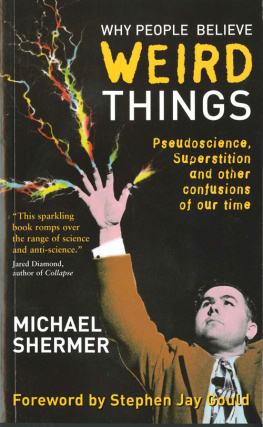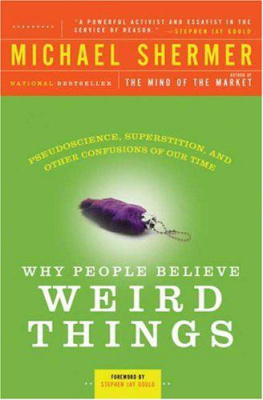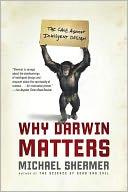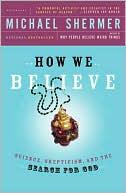
To the memory of Carl Sagan, 19341996, colleague and inspiration, whose lecture on The Burden of Skepticism ten years ago gave me a beacon when I was intellectually and professionally adrift, and ultimately inspired the birth of the Skeptics Society, Skeptic magazine, and this book, as well as my commitment to skepticism and the liberating possibilities of science
It seems to me what is called for is an exquisite balance between two conflicting needs: the most skeptical scrutiny of all hypotheses that are served up to us and at the same time a great openness to new ideas. If you are only skeptical, then no new ideas make it through to you. You never learn anything new. You become a crotchety old person convinced that nonsense is ruling the world. (There is, of course, much data to support you.)
On the other hand, if you are open to the point of gullibility and have not an ounce of skeptical sense in you, then you cannot distinguish useful ideas from the worthless ones. If all ideas have equal validity then you are lost, because then, it seems to me, no ideas have any validity at all.
Carl Sagan, The Burden of Skepticism,
Pasadena lecture, 1987
C ONTENTS
T ITLE P AGE
D EDICATION
Magical Mystery Tour
The Whys and Wherefores of Weird Things
A Skeptics Manifesto
The Difference Between Science and Pseudoscience
Twenty-five Fallacies That Lead Us to Believe Weird Things
The Normal, The Paranormal, and Edgar Cayce
Near-Death Experiences and the Quest for Immortality
Encounters with Aliens
Medieval and Modern Witch Crazes
Ayn Rand, Objectivism, and the Cult of Personality
An Evening with Duane T. Gish
Twenty-five Creationist Arguments, Twenty-five Evolutionist Answers
Evolution and Creationism at the Supreme Court
History, Censorship, and Free Speech
An Overview of a Movement
Debunking the Deniers
An African-Greek-German-American Looks at Race
Can Science Find the Best of All Possible Worlds?
The Positive Power of Skepticism
Stephen Jay Gould
S kepticism or debunking often receives the bad rap reserved for activitieslike garbage disposalthat absolutely must be done for a safe and sane life, but seem either unglamorous or unworthy of overt celebration. Yet the activity has a noble tradition, from the Greek coinage of skeptic (a word meaning thoughtful) to Carl Sagans last book, The Demon-Haunted World. (Since I also wrote a book in this genreThe Mismeasure of ManI must confess my own belief in this enterprise.)
The needboth intellectual and moralfor skepticism arises from Pascals famous metaphorical observation that humans are thinking reeds, that is, both gloriously unique and uniquely vulnerable. Consciousness, vouchsafed only to our species in the history of life on earth, is the most god-awfully potent evolutionary invention ever developed. Although accidental and unpredictable, it has given Homo sapiens unprecedented power both over the history of our own species and the life of the entire contemporary biosphere.
But we are thinking reeds, not rational creatures. Our patterns of thought and action lead to destruction and brutality as often as to kindness and enlightenment. I do not wish to speculate about the sources of our dark side: Are they evolutionary legacies of nature red in tooth and claw, or just nonadaptive quirks in the operation of a brain designed to perform quite different functions from the ones that now regulate our collective lives? In any case, we are capable both of the most unspeakable horrors and the most heartrending acts of courage and nobilityboth done in the name of some ideal like religion, the absolute, national pride, and the like. No one has ever exposed this human dilemma, caught between the two poles of our nature, better than Alexander Pope in the mid-eighteenth century:
Placed on this isthmus of a middle state,
A being darkly wise and rudely great
He hangs between; in doubt to act or rest;
In doubt to deem himself a god, or beast;
In doubt his mind or body to prefer;
Born but to die, and reasoning but to err.
Only two possible escapes can save us from the organized mayhem of our dark potentialitiesthe side that has given us crusades, witch hunts, enslavements, and holocausts. Moral decency provides one necessary ingredient, but not nearly enough. The second foundation must come from the rational side of our mentality. For, unless we rigorously use human reason both to discover and acknowledge natures factuality, and to follow the logical implications for efficacious human action that such knowledge entails, we will lose out to the frightening forces of irrationality, romanticism, uncompromising true belief, and the apparent resulting inevitability of mob action. Reason is not only a large part of our essence; reason is also our potential salvation from the vicious and precipitous mass action that rule by emotionalism always seems to entail. Skepticism is the agent of reason against organized irrationalismand is therefore one of the keys to human social and civic decency.
Michael Shermer, as head of one of Americas leading skeptic organizations, and as a powerful activist and essayist in the service of this operational form of reason, is an important figure in American public life. This book on his methods and experiences and his analysis of the attractions of irrational belief provides an important perspective on the needs and successes of skepticism.
The old clich that eternal vigilance is the price of liberty must be the watchword of this movement, for if the apparently benign cult maintains the same structure of potentially potent irrationality as the overtly militant witch hunt, then we must be watchful and critical of all movement based on suppression of thought. I was most impressed, on this theme, by Shermers analysis of the least likely candidate for potent harmAyn Rands Objectivist movement, which would seem, at first glance, to be part of the solution rather than the problem. But Shermer shows that this sect, despite its brave words about logic and rational belief, acts as a true cult on two key criteriafirst, the social phenomenon of demanding unquestioned loyalty to a leader (the cult of personalities), and second, the intellectual failure of a central irrationalism used as a criterion of potential membership (the false belief that morality can have a unique and objective stateto be determined and dictated, of course, by the cult leaders).
Shermers book moves from this powerful case in minimalism, through the more conceptual (however empty of logic and empirical content) irrationalisms of creationism and Holocaust denial, to the scarier forms of activity represented in ages past by crusades and witch hunts and, today, by hysteria about Satanic cults and the sexual abuse of children (a real and tragic problem, of course) on a scale simply inconceivable and therefore resting on an unwitting conspiracy of false accusations, however deeply felt.
We really hold only one major weapon against such irrationalityreason itself. But the cards are stacked against us in contemporary America, where even a well-intentioned appearance on Oprah or Donahue (both of which Shermer has attempted with troubling results, as described herein) only permits a hyped-up sound bite rather than a proper analysis. So we have to try harder. We can, we have, we will. We have also won great victories, big and smallfrom Supreme Court decisions against creationism to local debunkings of phony psychics and faith healers.
Next page








